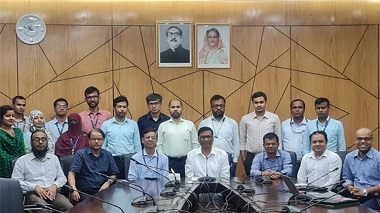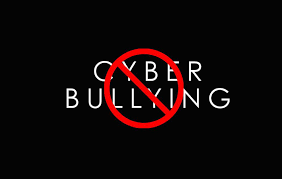Kaspersky Next launched in Bangladesh
TechLife ReportThe cyber security company introduced new flagship product line ‘Kaspersky Next’ in Bangladesh on Thursday combining robust endpoint protection with the transparency and speed of EDR (Endpoint Detection and Response).The new solutions featured powerful tools of XDR (Extended Detection and Response). Customers can now choose one of three product tiers tailored to their business requirements, the complexity of tech infrastructure, says a press release.Regarding the launching, Southeast Asia General Manager Yeo Siang Tiong said the company has brought cutting-edge XDR solution and the transformation of our corporate product offerings.“With the introduction of Kaspersky Next, we're simplifying the complexities of EDR and XDR for businesses and organizations in Bangladesh of all sizes. Our mission is to deliver top-notch protection driven by unparalleled expertise to every customer—whether they're novices in cybersecurity or equipped with their own SOC teams,” he said.Bangladesh's cybersecurity landscape in 2023 reveals a pressing need for enhanced digital defenses. Kaspersky's latest findings showed that the country witnessed 11.4 million internet-borne cyberthreats or web threats detected last year. On the other hand, local threats were prevalent, with 33.3 million incidents detected, while the share of incidents originating from servers hosted within Bangladesh was 78,000 in the period January-December 2023.Southeast Asia Systems Engineering head Victor Chu said Kaspersky Next addresses the challenges the technozlogical development may bring upon offering cutting-edge cybersecurity solutions.“By combining advanced endpoint protection with the transparency and speed of EDR and the powerful tools of XDR, Kaspersky Next empowers companies to fortify their cybersecurity posture amidst the evolving threat landscape, ensuring a secure transition towards a smart future," he said.Kaspersky Next is a new line of cybersecurity products that includes robust endpoint protection powered by AI capabilities, and goes beyond the classic EPP (Endpoint Protection Platform), bringing together EDR and XDR for corporate customers.
BCC opens training on certified ethical hacking
TechLife ReportA national-level training programme on cybersecurity of state security and financial institutions has began at Bangladesh Computer Council (BCC).BCC Executive Director Ranjit Kumar inaugurated the course as chief guest while BB Director Mohammed Abdur Razzaq was special guest on the occasion, says a press release on Thursday.Some 15 officials of the rank of additional director, joint director, deputy director and assistant director of Bangladesh Banks took part in the seven-day course,Addressing the programme, BCC chief Ranjit Kumar said that the training courses of BKIICT are of very high quality and practical in terms of application. “They make a significant contribution to their institutional and real life,” he said.Mohammed Abdur Razzaq said that just as the advancement of technology is bringing about radical changes in people's way of life, so too are syndicates trying to take advantage of irregularities in various ways.He believes that this type of training will be very useful in keeping his institutions officials abreast of changing technologies to protect government money. He thanked BCC for their overall cooperation in organizing the training.BKIICT Director Ashok Kumar Roy presided over the session while BCC regional director Madhusudan Chandra coordinated the training course.
Kaspersky to extend business footprint to Bangladesh
TechLife ReportInternational cyber security company Kaspersky has announced its expansion into new territories in Asia Pacific, including Bangladesh, Cambodia and Sri Lanka.This strategic move marks a significant milestone in the company's mission to fortify digital infrastructure across the developing economies in the region, particularly in the enterprise cybersecurity market, said a press release on Wednesday.Kaspersky Asia Pacific Managing Director Adrian Hia said “The expansion into Cambodia, Sri Lanka, and Bangladesh reflects our solid dedication to safeguarding the wider cybersphere of the region.”“By leveraging our advanced technologies and industry-leading practices, we are committed to helping private and public entities in these territories, building a cyber immune approach to secure their personal, business, and even critical and national data,” he said.Kaspersky’s move to extend its market footprint into these new territories will enable organisations across various sectors, including government, finance, healthcare, and telecommunications to access cyber security solutions tailored to their specific needs.To ensure that the global cybersecurity company is ready to address the local demand in Cambodia, Sri Lanka, and Bangladesh, Kaspersky has appointed Sam Yan as its head of sales and Pheakday Chun and Musfiqur Rahman as pre-sales managers. Sam Yan said that the expansion will help the authorities to promote cybersecurity awareness, skills development, and best practices adoption to mitigate cyber risks effectively.The team will report directly to Southeast Asia General Manager Yeo Siang Tiong.
Top 05 IT Profitable businesses for 23
There are many profitable IT businesses right now, and the best one for you will depend on your skills, interests, and resources. Here are some of the most lucrative IT businesses at the moment:Cybersecurity services: With the increasing frequency of cyber-attacks, businesses of all sizes are looking for ways to protect their data and systems. Offering cybersecurity services, including threat assessments, security audits, and incident response planning, can be a profitable business opportunity.Cloud computing solutions: Cloud computing is becoming increasingly popular, and businesses need help with migration, integration, and management of cloud solutions. Offering cloud computing services, including consulting, migration, and management, can be a profitable IT business.Artificial intelligence and machine learning: AI and machine learning are transforming many industries, and businesses are looking for ways to leverage these technologies. Offering AI and machine learning consulting services, including data analysis, model development, and implementation, can be a profitable business.Mobile app development: With the increasing popularity of smartphones and tablets, businesses need mobile apps to engage with customers and streamline operations. Offering mobile app development services, including design, development, and testing, can be a profitable IT business.E-commerce solutions: With the growth of online shopping, businesses need e-commerce solutions to sell their products and services online. Offering e-commerce development and management services, including website design, shopping cart integration, and payment gateway integration, can be a profitable business opportunity.Overall, there are many profitable IT businesses right now, and the key to success is finding a niche that matches your skills and interests and that meets the needs of the market.
Cyberbullying a serious problem for 85% of Bangladesh youths
The most common platforms where youths experienced online bullying were social media, messaging apps, and online gaming and video game streaming platformsCyberbullying is a serious problem for 85% of Bangladeshi youths, according to a Grameenphone and Telenor Group survey run in association with Plan International from August to September.The survey was conducted among youths to find out how internet use and online bullying trends have changed across Bangladesh, Malaysia, Pakistan and Thailand in the backdrop of Covid-19. Of the 3,930 respondents to the regional survey, 16% were youths from Bangladesh. About 29% of Bangladesh youths said they were bullied before the pandemic, and 18% said they experienced more online bullying since the onset of Covid-19. Around 8% of youths experienced online bullying at least once a week since the arrival of the pandemic. The most common platforms where youths experienced online bullying were social media, messaging apps, and online gaming and video game streaming platforms.To stop the bullying online, respondents in the four countries said that they took several measures to safeguard themselves, which included ignoring the bully, which resulted in the person stopping, changing security settings online so the person could not contact them, and speaking to a parent or guardian about the problem.The survey also revealed that 86% of youths surveyed in Bangladesh spent more time on the internet since Covid-19 began. In addition, 35% of youths in Bangladesh said they used the internet all the time, 15% used it mainly in the evenings, and only 2% limited their use to only during school hours. Yasir Azman, CEO of Grameenphone, said: "There is no denying our future generation needs digital skills and are active users of the internet. So, we need to intensify cooperation and commitment with various stakeholders to keep them safe. The survey results set a call to action to focus on this issue collectively.”Manisha Dogra, VP (Sustainability) for Telenor in Asia, said: "With the marked increase in time spent on the internet by youth during the pandemic, there is a clear need to better equip youth with ways and methods to protect themselves online. Awareness, training on online bullying, and digital building resilience are crucial to be a multi-stakeholder exercise. This should not be left just to educational institutions but should also involve parents and caregivers."
5 thousand per minute users in Surokka
In order to prevent corona (Covid-19), the pressure has started to start mass vaccination activities in the country on the virtual registration platform 'Surokka'. From this app and website now more than 5 thousand per minute.The platform has successfully verified and registered the NIDs of a total of 14 lakh 60 thousand citizens from 9 am to 12:30 pm on Saturday. In all, more than 2 crore 16 lakh registrations have been made till this day.An official from the Department of Information and Communication Technology (ICT) said on condition of anonymity that the DIDS attack was carried out on August 4 and 5 for security reasons outside the country. Then in 48 hours 2 crore 36 lakh clicks were made from within the country. On the other hand, only 1 crore 20 lakhs from Hungary and a total of 36 million clicks from abroad. As a result, some people are embarrassed to use it at that time. Realizing the matter, registration from outside the country has been stopped. As a result, 15 percent of the registration capacity is now being used. Security has a total registration capacity of 16 crore. That means 50 thousand people can register every second.Earlier, State Minister for ICT Junaid Ahmed Palak had said that the ‘Surokka’ has a capacity of 5 million registrations per day. Registration for the coronavirus vaccine began on January 26. After that, the vaccination program started from February 8. Due to low stock of ticks, the registration process of ticks was suspended from June 6. Later, at the end of June, the registration of tickers started again. Then, on July 14, the registration for the vaccine crossed the one crore milestone.
1 crore 20 lakh children and adolescents are at risk of internet
Like all over the world, schools and colleges in Bangladesh have been declared closed from March 16 to March 31. About 25 million children and adolescents (play to class 10) are under house arrest in the country. As the government conducts online-based classes in schools and colleges, children between the ages of 4 and 14 are forced to use the internet. At the same time, the Bangladesh Mobile Phone Subscribers Association has raised questions about the security of the internet being handed over to tender-hearted children and teenagers even if they are kept at home.Mohiuddin Ahmed, president of the organization, urged parents to be vigilant in this regard, saying the medium is not yet suitable for children and adolescents to use. For this reason, on May 8, the United Nations, the International Telecommunication Union (IEU), warned young children against using the Internet. They say that about 1.5 billion schools and colleges in the world are closed. They are using the internet to study, play sports, watch video games. By doing so, they are going to fall into cyber risk. Due to the lack of internet and devices in Bangladesh, even if 50 per cent are out of the internet, the adverse effects of the internet on about 12 million children will still fall on them. At the same time, the issue of excessive use of internet addiction cannot be ruled out. "We are not aware of any initiative taken by the Ministry of Telecommunications to ensure the safety of children in using the Internet and no policy has been formulated in this regard," he added. The IEU is already going to make some recommendations. We all know what we want to know about the internet as well as unwanted things. As a result, tender-hearted children know what they need to know at an early age before developing their talents. At the same time, they could put themselves and their families at cyber risk.
Over 500,000 Zoom accounts being sold on Dark Web, hacker forums for FREE
Over 500,000 Zoom account being hacked and sold on a hacker forum, the dark web according to a new report by BleepingComputer. A portion of these Zoom accounts was being offered for nothing on hackers’ gatherings with the goal that programmers can utilize them in zoom-shelling tricks and malignant exercises. The more significant part a million records of Zoom, a virtual meeting specialist organization, have been sold on the dark web and hacker forums, and now and again, parted with for nothing. Zoom has surged in popularity in recent weeks as the number of people working from home has increased but concerns about the videoconferencing app's security have also made the headlines. However, the availability of Zoom accounts on the dark web does not appear to be a direct consequence of the app's failings. A portion of these Zoom accounts was being offered for nothing on programmer gatherings with the goal that programmers can utilize them in zoom-shelling tricks and malignant exercises. Others are sold for not exactly a penny each. These credentials are gathered through credential stuffing attacks where threat actors attempt to login to Zoom using accounts leaked in older data breaches, and successful logins were then compiled into lists that were sold to other hackers, The Daily Mail reported on Monday citing online forum BleepingComputer. BleepingComputer said Cybersecurity insight firm Cyblec first saw around April 1 that free Zoom accounts were being presented on programmer gatherings on the increase expanded notoriety in the programmer network. The accounts are reportedly being shared via text sharing sites as lists of email addresses and password combinations. The account can include a victim's email address, password, personal meeting URL, and their hockey. Cybersecurity firm Cyble, which had the option to buy 530,000 Zoom credentials for not exactly a penny each at $0.0020 per account, said the Zoom accounts started showing up in the hackers' network toward the start of April, with hackers offering the accounts to build notoriety. While Zoom has developed as a primary video chatting provider during the COVID-19 pandemic, the application is defaced by the day by day news about it being inclined to hacking. Issues that have hit its believability is information offering to Facebook, uncovered LinkedIn profiles, and a "malware-like" installer for macOS.
It is essential to provide security to everyone on the internet: Mustafa Jabbar
Digital and Telecommunication Minister Mustafa Jabbar commented that digital security is essential for all types of internet users including children.He said safe internet is essential to build skilled human resources capable of tackling the challenges of digital art revolution. To achieve this goal, we will have to work in a coordinated way by determining to do the right thing.The task of securing digital security is not a single department and agency act, said Mustafa Jabbar. It is easy to deal with the situation if the concerned agencies including the Digital Security Agency and the law enforcement agencies work together.The minister said this while speaking as the chief guest at the Digital Security and Duty Headworks Workshop organized by Digital Security Agency and Information Technology Division in Dhaka on Saturday.The minister said the government started work on Digital Bangladesh three years before the fourth industrial revolution was discussed in the world. No one even thought that digital safety law would be introduced in Bangladesh. Its coverage in the digital world and its security is a huge issue. There is no scope to debate about it.Children need to use the Internet to create skilled human resources to combat the global challenges of the future. The minister said that in order to provide a safe Internet to the new generation from the age of five years, the minister will have to make arrangements.Because we are asking for achieving skill on the internet, on the other hand, if not able to secure their security, it will not be possible.Referring to the digital war in the coming days, the minister said, there is a need to gain huge potential in this regard. In front of the wonderful technology, the driverless car will run, the Robot Garments Industry will serve as an alternative to the people.The Minister stressed the need for technology to be protected by technology and creating awareness.Presided over by ICT Division Secretary NM Ziaul Alam, and in the presence of the Policy Adviser Anir Chowdhury of A2I, Senior Member of Parliament, Aparajita Haque, Legislative and Parliamentary Affairs Affairs Secretary Mohammad Shahidul Haque, Director General of Digital Security Agency Md. Rashedul Islam and BASIS President Syed Almas Kabir spoke on the occasion.The Vice-Chancellor of Canadian University of Bangladesh presented the keynote paper. Mohammad Mahfujul Islam. Additional Deputy Commissioner of Police Monirul Islam and ISPAB President Mohammad Aminul Hakim took part in the discussion in the discussion.
Are we ready for cyber war?
The present era of Cyber-age indeed is a trending topic where network with the presence of internet provides foremost impact on professional and social life. Having a widespread range of internet has also arisen the apprehensiveness of network security. We rely upon technology intensely which decodes to the emergence of the online hacker. The expanding nature of the organization results the higher danger of cyber-assault. This is the reason cyber security comes into the picture to rescue. Cyber security, as a textbook definition, refers to the collection of security concepts, rules, legal acts, regulation, exercise, training and assurance of technologies, safeguards, policies that can be utilized to ensure the cyber condition, association and client’s assets. To be more precise, it guarantees the completion and maintenance of the security resources of the organization and user’s benefit against applicable security risk in the cyber environment.In the context of cyber space, Bangladesh has turned out to be a standout amongst 100 nations, ranked 73 in the National Cyber Security Index (NCSI). Cyber-attacks often took place, which caused loss of assets in very recent time. Banking segment, corporate division, intelligent agencies, Bangladesh administrator services, credential data storage, and a lot more are being affected by the involvement of cyber-crime. According to the Kaspersky Security Bulletin 2015, about 69.55% individuals are in the high risk of local virus infection and around 80% users are the victims of spam attack in Bangladesh. Bangladesh bank experienced a massive loss of money as hackers successfully stole nearly $100 million in the year 2016 and depict an alert for the other banks as the considerable threat of cyber-crime. Moreover, the endurance of destruction of several online resources due to the cyber-war occurrence has led the country to look for possible solution. Cyber-security therefore, demands an incredible working opportunity, related to almost every account. The demand for security experts is foreseeing to develop in the coming days. The cyber security market is expected to grow to around $232 billion by 2022. There is an extensive requirement for security experts to work in the ethical hacking field in order to deal with its security, particularly client data or private details. Big IT organization in Bangladesh, Army sector, banking sector, firmly recognize the requirement for data security specialist, cyber security experts, and ethical hackers. Hence, an ethical hacker or security expert is usually employed by companies to ensure the security system powerful.














